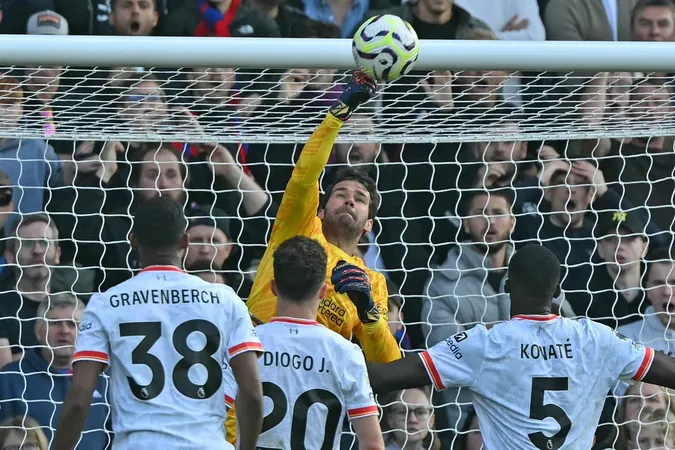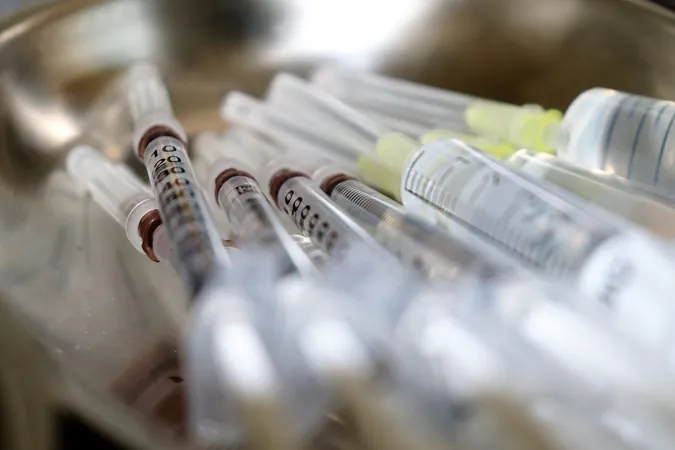
The Hidden Dangers of Binge Drinking: New Insights on Irregular Heartbeats in Young Adults
2024-10-04
The Connection Between Binge Drinking and Heart Issues
Recent research has illuminated the concerning connection between binge drinking and irregular heartbeats in young adults, revealing a timeline for the onset of heart-related issues following excessive alcohol consumption. The study, led by Dr. Stefan Brunner from LMU Klinikum University Hospital in Munich, Germany, has generated significant interest in the medical community.
Observations During Continuous Monitoring
Using continuous rhythm monitoring, researchers observed that individuals without a prior history of cardiac arrhythmias experienced a spike in premature ventricular complexes (PVCs) during drinking sessions. Astonishingly, participants reported a marked increase in premature atrial complexes approximately 24 hours after their binge drinking episodes.
Study Findings Published in the European Heart Journal
The study, published in the European Heart Journal, involved nearly 200 participants and noted that after their drinking bouts, several individuals encountered serious arrhythmic events. This included cases of atrial fibrillation (Afib), non-sustained ventricular tachycardia, and various levels of atrioventricular block. While instances like the so-called 'Holiday Heart Syndrome'—typically associated with Afib—are rare in otherwise healthy individuals, this research highlights it as a notable health concern.
Autonomic Response and Risk Factors
Dr. Brunner's team discovered that heart rate variability analysis indicated changes in autonomic modulation; specifically, sympathetic activation during drinking, followed by a shift to parasympathetic dominance during recovery. This autonomic response is critical, as prior studies have linked alcohol consumption, even in smaller quantities, to an increased risk of atrial fibrillation and other cardiovascular issues.
Implications of Excessive Alcohol Intake
Furthermore, the researchers pointed out that excessive alcohol intake could be underestimated as a contributor to ventricular arrhythmias and conditions like sudden cardiac death. Their previous study during the Munich Oktoberfest saw a striking correlation between breath alcohol concentration (BAC) and cardiac arrhythmias, reporting a 0.59% incidence of new-onset Afib.
Details of the Study and Participant Monitoring
In the latest study, dubbed MunichBREW II, participants included 202 adult volunteers who were closely monitored for 48 hours following their planned alcohol consumption. They could expect peak BACs of at least 1.2 g/kg. A thorough selection process ensured that individuals with preexisting cardiac conditions or devices were excluded, leading to a final cohort of 193 participants, who had an average age of nearly 30 and reported consuming an average of 6.8 alcoholic drinks weekly.
Average BAC and Long-term Follow-ups
During the drinking sessions, the average maximum BAC reached was an alarming 1.4 g/kg across genders. Long-term follow-ups conducted in 2024 revealed that over 20% of participants had self-reported symptomatic episodes like palpitations, and there were several new cases of Afib diagnosed years after the study.
Cautions Regarding the Findings
While these findings raise important questions regarding the long-term cardiovascular implications of binge drinking, the researchers do caution that their results may not apply to older adults or those with existing heart conditions. They also noted that they did not track arrhythmias beyond the initial 48-hour monitoring period.
Conclusion and Call to Action
In conclusion, the evidence suggests that young adults who engage in binge drinking face serious risks, including the potential development of atrial fibrillation and other heart-related conditions. These findings could serve as a wake-up call for the youth and health professionals alike to recognize the dangers lurking behind the festive drink. Stay tuned as more research emerges on this critical topic, and remember, the #BingeDrinkingRisks may be closer than you think!






 Brasil (PT)
Brasil (PT)
 Canada (EN)
Canada (EN)
 Chile (ES)
Chile (ES)
 España (ES)
España (ES)
 France (FR)
France (FR)
 Hong Kong (EN)
Hong Kong (EN)
 Italia (IT)
Italia (IT)
 日本 (JA)
日本 (JA)
 Magyarország (HU)
Magyarország (HU)
 Norge (NO)
Norge (NO)
 Polska (PL)
Polska (PL)
 Schweiz (DE)
Schweiz (DE)
 Singapore (EN)
Singapore (EN)
 Sverige (SV)
Sverige (SV)
 Suomi (FI)
Suomi (FI)
 Türkiye (TR)
Türkiye (TR)